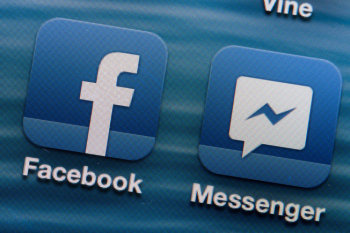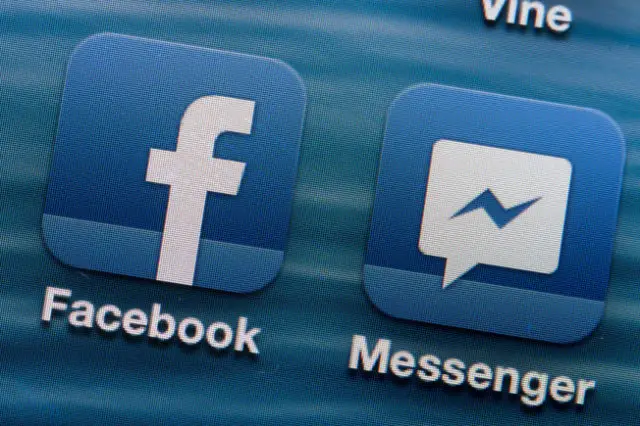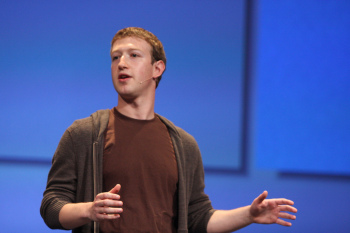
Why is Facebook Messenger a separate app? Zuckerberg explains
Facebook has never made the most sensible or popular changes to their apps over the years. In fact, almost all of their changes are met with choruses of discontent and anguish. One such change was the split of Messenger from the main app into its own little world. It made little sense at the time, but Facebook founder and CEO Mark Zuckerberg sure felt it was the right decision and despite the outrage from millions of the social network’s users he wasn’t going to budge.
The company has long danced around the question of “why” with a collection of vague responses, but the head honcho finally decided to speak on it in a more open manner. Zuckerberg tackled the issue during his first ever public Q&A session with an explanation that actually makes more sense than you may think:
Asking everyone in our community to install a new app is a big ask. I appreciate that that was work and required friction. We wanted to do this because we believe that this is a better experience. Messaging is becoming increasingly important. On mobile, each app can only focus on doing one thing well, we think.
The primary purpose of the Facebook app is News Feed. Messaging was this behavior people were doing more and more. 10 billion messages are sent per day, but in order to get to it you had to wait for the app to load and go to a separate tab. We saw that the top messaging apps people were using were their own app. These apps that are fast and just focused on messaging. You’re probably messaging people 15 times per day. Having to go into an app and take a bunch of steps to get to messaging is a lot of friction.
Messaging is one of the few things people do more than social networking. In some countries 85 percent of people are on Facebook, but 95 percent of people use SMS or messaging. Asking folks to install another app is a short term painful thing, but if we wanted to focus on serving this well, we had to build a dedicated and focused experience. We build for the whole community. Why wouldn’t we let people choose to install the app on their own at their own pace? The reason is that what we’re trying to do is build a service that’s good for everyone. Because Messenger is faster and more focused, if you’re using it, you respond to messages faster, we’ve found.
The reason I say it makes sense? You needn’t look much further than the company who makes the very mobile operating system we talk about on Phandroid each and every day. Google could have easily merged Hangouts with the Google+ or Gmail apps on Android and iOS, especially considering the service it originally spawned from — Google Talk — was only accessible while using Gmail or a few of Google’s other web-based products.
Instead, Google decided to make Hangouts its own experience, and that could be a contributing factor to why it’s grown to be what it is now. Hangouts can be the simple messaging platform or SMS alternative you need it to be, or you can use it to conduct big group chats, video conference calls and even place free calls to countries around the world. While all that same goodness could have come to Hangouts in any form, having it in its own app keeps all of Google’s other apps from being overly confusing or bloated, and it makes it easier to highlight Hangouts’ value-packed feature set.
Looking at Facebook, there’s no reason anyone should blame them for wanting to do the same. Facebook’s viability as a messaging platform is growing each and every day, even if only for the sheer fact that it’s more likely that your friends and family are using it compared to messaging-focused services like GroupMe or WhatsApp. Facebook knows this, and they want to leverage that position to grow the service beyond a simple messaging tool to augment the base social experience. If they feel this is the way to do it, then we can’t say we know any better.
It’s easy to berate Facebook whenever they make sweeping changes and force users to adapt instead of giving them choice. In fact, it’s almost always a bad thing when choice is taken out of the equation. But in this instance, I can’t say I disagree with Mark Zuckerberg’s explanation as to why they’ve split Messenger off into its own app and forced everyone to get used to it.
And now that I think about it, I probably do enjoy Facebook Messenger a lot more now that I don’t have to venture into the messy app Facebook has become. That’s another story for another day, though. For now, we want to hear your thoughts on Zuckerberg’s explanation. Whether or not you agree, be sure to drop a line in the comments and — in the spirit of voting season — participate in the poll below.
[polldaddy poll=8431941]


